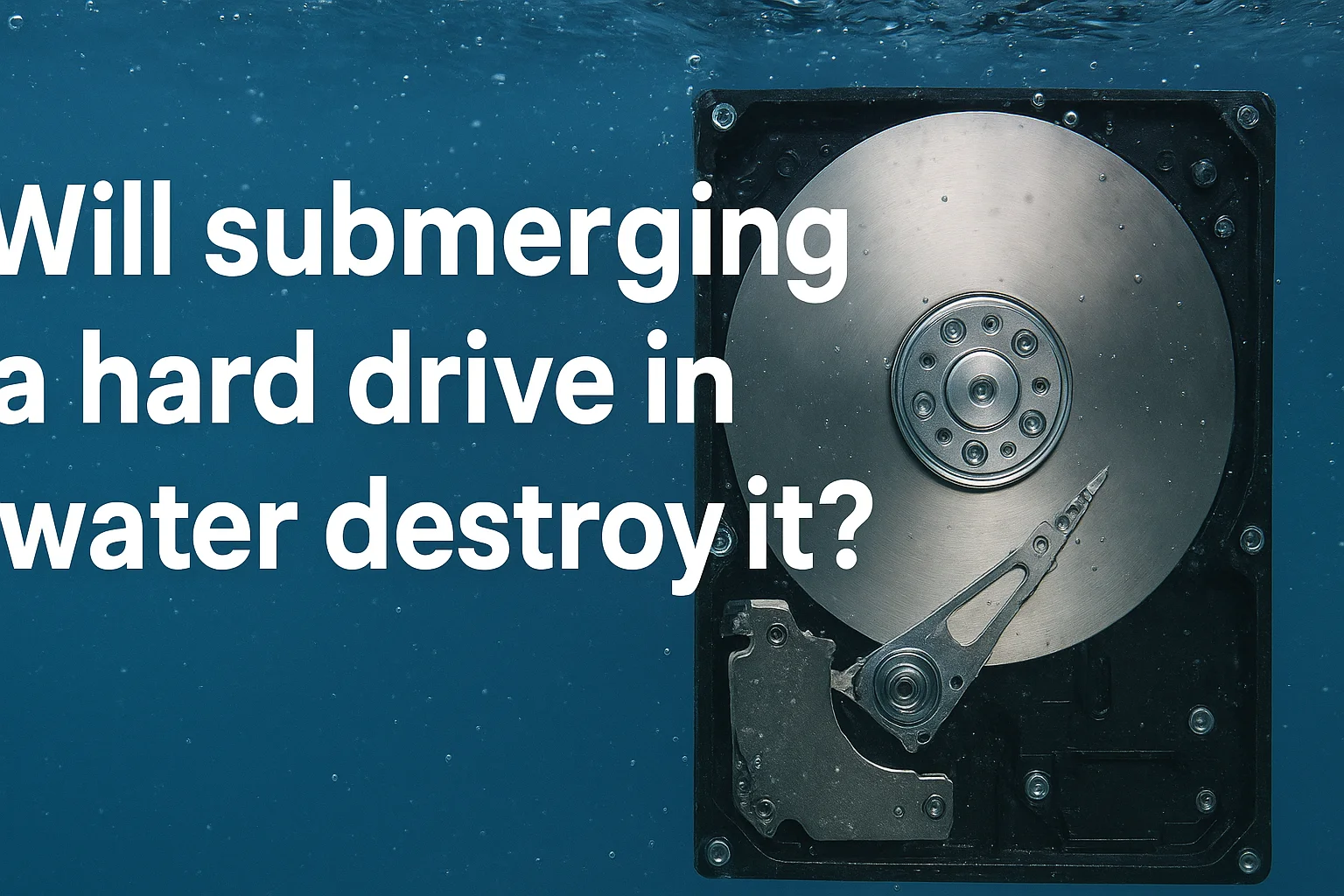In many cases, when someone sees that some device has fallen into the water, he takes it for ruin. Which raises the oft-asked poignant question: Will dunking a hard drive in water ruin it? The answer, however, is not so easy to give as a simple yes or no. Water might damage the physical and electronic components of a hard drive, but might not delete the data. Even after sinking to the bottom of a lake, data can still sometimes be recovered.
Before answering that, we first need to understand how a hard drive is built. Standard Hard Disk Drives (HDDs) have platters with magnetic coated materials. Data is being written onto it magnetically, not electronically. That means even if the drive's circuits are fried, the magnetic information on the platters might be perfectly fine. Although water can damage electronics, it does not necessarily wipe magnetic signatures.
What Happens When a Hard Drive Is Submerged?
Does dunking a hard drive in water smash it? Not immediately. Here’s what typically happens:
Short-Circuiting:
If the device is turned on while wet, it may short out electrical components inside the drive. But if the drive was never powered on or is powered on after the water intrusion, there is not significant electrical damage.
Corrosion:
Water, especially if it also contains salt, will eventually erode away internal components. While corrosion can make the drive unreadable, expert data recovery professionals are sometimes able to retrieve data.
Damage to Read/Write Heads:
When the platters are in a sealed chamber, any water that enters will cause particles and mineral deposits to scratch the surface and/or contaminants making data recovery difficult.
So, does dunking a hard drive into water kill it? Not immediately—but likely will destroy organic material and complicate restoration.
Differences Between SSDs and HDDs in Water?
SSDs (Solid State Drives) keep data in flash memory chips. Despite the water exposure still resulting in short circuits and corroded connectors, as long as the chips are not physically damaged, the data can be saved.
That's right. So, will dunking a hard drive in water ruin it? Of course, with SSDs, you have to damage the memory chips themselves, not just contact with water, to get full destruction.
Does Submerging Prevent Data Recovery?
One of the common myths is that water completely wipes away data. Data recovery software laboratories are outfitted with clean rooms and magnetic imaging machines to recover data from even the most severely damaged drives.
So the short answer is, will putting a hard drive in water ruin it? This can break the device entirely, but data recovery professionals are still often able to pull data off of it.
How to Properly Destroy Data Instead of Relying on Water?
If you intend to make it impossible to recover the data, you require solutions that eliminate the layer of data itself — as opposed to just destroying hardware.
1. Software Data Wiping
As such the most trusted and therefore recommended method would be to wipe disks using certified disk wiping software which writes over and over again on the data. This guarantee that the information is forever unrecoverable — even by unsurpassed forensic recuperation devices.
For instance, SysTools Data Wipe Software can securely delete data using the standard overwrite algorithms.
2. Degaussing
Using a strong magnetic field to scramble the data on HDD platters is what a degausser does. This not only makes data unreadable but also permanently renders the drive unusable.
3. Physical Destruction
It entails mutilating the platters or memory chips so that the data storage surfaces are permanently damaged.
Steps:
-
Open the enclosure.
-
Take out the platters (in HDDs) or chips (in SSDs)
-
The platters get scratched, sanded, drilled or smashed
-
Dispose of materials safely.
4. Shredding
High-level destruction can be done using industrial shredders which grind the drives into small pieces. This often exists in corporate data disposal scenarios.
Final Words
Does that mean dropping a hard drive into water will ruin it? Not necessarily. Water can disable electronic operations, but it'll typically not damage stored data, which can be recovered in many cases. Using water to erase your data does not seem to be a good idea at all, and if by chance the drive falls into the wrong hands, the recovery will be done but will be much more expensive if it had just been put in rice. Methods that genuinely are secure include data wiping, degaussing, or physical destruction.
Finally, the answer to the question is Will submerging a hard drive in water destroy it? Instead reads: How to delete so that data can not be recovered. And the answer is low-level wiping software, or a data destruction layer or hard drive in the water is not enough.






